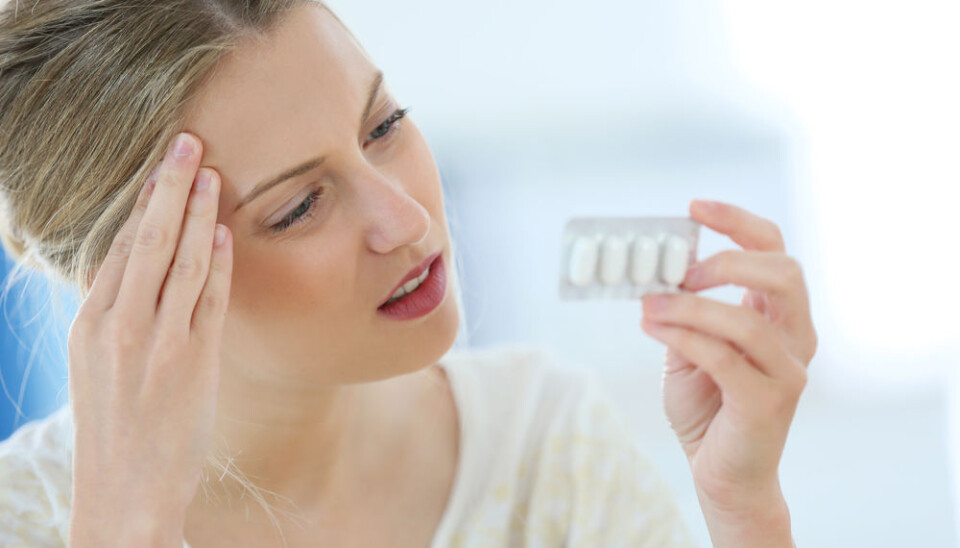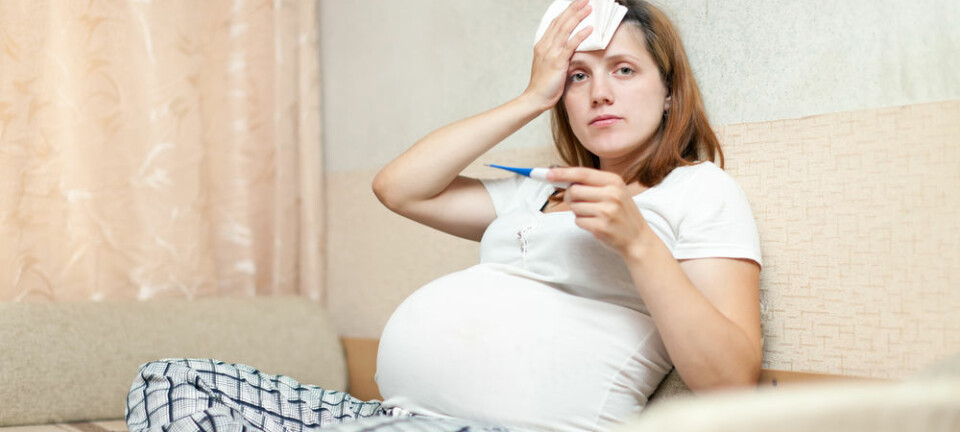
Painkillers lower fertility in mice
Female mice lost half of their eggs when their mother was exposed to painkillers during pregnancy.
Pregnant women should think twice before taking over-the-counter painkillers containing paracetamol, warns scientists who investigated the effect of the drug on female mice.
They discovered that half of the mice’s egg cells disappeared when their mother was exposed to paracetamol during pregnancy and this could also be true in humans.
Earlier studies have suggested that paracetamol increases the risk of boys being born with malformed genitals. But new research now warns that female foetuses may also be affected by reducing their chance of conceiving as adults.
"It’s so striking in mice, it’s very possible that something similar is true in humans. Especially considering that we already know that [paracetamol] affects boys," says lead author Assistant Professor David Møbjerg Kristensen, at the Department of Biology, the University of Copenhagen, Denmark.
Paracetamol halved egg reserves
Kristensen and his team exposed pregnant mice to paracetamol and compared them with a control group of mice that did not receive the drug.
When the young female mice that were exposed to paracetamol as a foetus grew up, they had half the eggs in their ovaries as the control group.
"In contrast to males, who produce sperm cells throughout their life, females form eggs only during the embryonic stage. So when a female mouse or a woman, is born, she has already developed her egg cells,” says Kristensen.
“Our recent data simply indicate that paracetamol inhibits the formation of the egg. And this has lifelong consequences," he says.
According to Kristensen, the results suggest that these females may have difficulty in becoming pregnant later on.
"The effects [of paracetamol] on females seems to be more disturbing than those on young boys,” says Kristensen.
“Female mice quickly become infertile, most likely because of a lack of eggs. In boys, paracetamol immediately leads to reduced testosterone, while girls are affected by changes to both hormones and egg formation," he says.
The mice were given a relatively small dose
Professor Jørn Olsen, a research scientist at the Institute for Public Health, at Aarhus University, Denmark, thinks that the results are of “great interest” if the same effects can be observed in humans.
“It’s a relatively small study, but well conducted and with significant implications,” says Olsen, who was not involved in the new study, but was a co-author on another study that linked paracetamol consumption and testicle deformation in young boys.
“It’s novel to look at female mice offspring,” he says.
Olsen is particularly struck by the fact that the mice didn’t receive excess doses of paracetamol. In fact, they were scaled down to a typical dose that an adult human might take without thinking twice about it.
"Usually we conduct mice experiments with large doses, much higher than a human would consume,” says Olsen, adding that here they administered a dosage equivalent to what a person might normally take, simply scaled down for the size of the mice.
--------------
Read the Danish version of this story on Videnskab.dk
Translated by: Catherine Jex
Scientific links
- 'Intrauterine exposure to paracetamol and aniline impairs female reproductive development by reducing follicle reserves and fertility' 2016, Toxicological Sciences, doi: 10.1093/toxsci/kfv332
- 'Aniline Metabolism and Male Reproduction', 2015, Toxicological Sciences, doi: 10.1093/toxsci/kfv179









